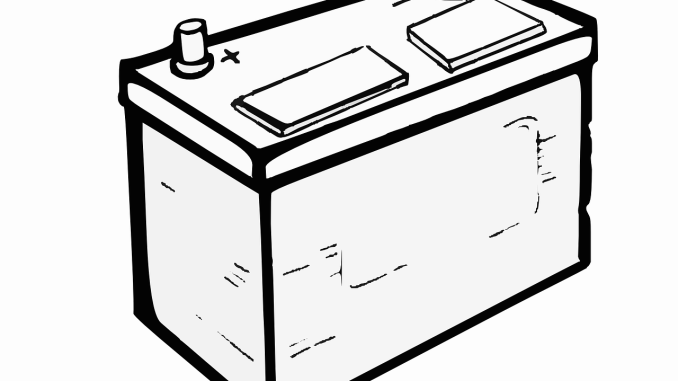
Winter boat battery storage and maintenance is a crucial aspect of boating that is often overlooked. During the winter months, boat owners should take the necessary steps to ensure their batteries are properly stored and maintained to prevent damage and maximize their lifespan. In this article, I will provide suggested tips for winter boat battery storage and maintenance, as well as debunk common myths surrounding winter battery care.
Essential Winter Battery Storage Tips
As a boat owner, it’s essential to properly store your boat’s batteries during the winter months to ensure they remain in good condition and are ready to use when the boating season begins. Here are some essential tips for winter boat battery storage:
Optimal Storage Temperature
Storing your boat’s batteries at the optimal temperature is crucial to their longevity. Batteries should be stored in a cool, dry place, ideally at a temperature between 32 and 70 degrees Fahrenheit. Extreme temperatures, whether hot or cold, can cause damage to the battery and reduce its lifespan.
Proper Charging Before Storage
Before storing your boat’s batteries for the winter, it’s essential to ensure they are fully charged. A fully charged battery is less likely to freeze and will maintain its charge during storage. It’s recommended to charge your batteries one final time before storage to ensure they are fully charged.
Disconnecting the Battery
Disconnecting your boat’s battery is an essential step in winter storage. This prevents the battery from discharging and extends its life. When disconnecting the battery, it’s important to remove the negative cable first and then the positive cable. This prevents any accidental electrical discharge.
By following these essential winter boat battery storage tips, you can ensure your boat’s batteries remain in good condition and are ready to use when the boating season begins. Remember to always refer to the manufacturer’s instructions for specific storage and maintenance guidelines.
Routine Battery Maintenance Procedures
As a boat owner, it is essential to perform routine maintenance on your boat’s battery to ensure it remains in good condition and is ready to use when the boating season starts. Here are some essential procedures to follow:
Cleaning Battery Terminals
One of the essential maintenance procedures is cleaning the battery terminals. Over time, the battery terminals can become corroded, which can reduce the battery’s performance. To clean the terminals, I use a wire brush or battery terminal cleaner to remove any corrosion. After cleaning, I apply a small amount of petroleum jelly or dielectric grease to the terminals to prevent further corrosion.
Checking Electrolyte Levels
Checking the electrolyte levels in the battery is also crucial. The electrolyte is a solution of sulfuric acid and water that is used to generate electricity. If the electrolyte levels are too low, the battery will not function correctly, and its lifespan will be reduced. To check the electrolyte levels, I remove the battery caps and use a hydrometer to measure the specific gravity of the electrolyte. If the levels are low, I add distilled water to top up the levels.
Maintaining Charge During Winter
During the winter months, it is essential to maintain the battery’s charge to prevent it from freezing and becoming damaged. I use a battery charger to keep the battery charged during the winter months. It is essential to use a charger that is designed for marine batteries and has a float mode to prevent overcharging.
By following these routine maintenance procedures, you can extend the life of your boat’s battery and ensure that it is ready to use when the boating season starts.
Common Winter Battery Myths Debunked
As a boat owner, you may have heard a lot of myths and misconceptions about winter battery storage. In this section, I will debunk some of the most common winter battery myths to help you take better care of your boat batteries.
Myth: Cold Weather Won’t Affect Batteries
Many boat owners believe that cold weather won’t affect their batteries. However, this is not true. Cold temperatures can significantly reduce the capacity of your batteries, making them less effective when you need them most. In fact, batteries lose about 60% of their capacity at 0°F (-18°C) compared to their capacity at 80°F (27°C). Therefore, it is essential to keep your batteries warm during the winter months to maintain their performance.
Myth: Storing Batteries on Concrete Drains Charge
Another common myth is that storing batteries on concrete will drain their charge. This is not true. The myth stems from the fact that concrete is a good conductor of electricity. However, the amount of electricity that concrete can conduct is negligible and will not drain your battery’s charge. Therefore, you can safely store your boat batteries on concrete without worrying about losing their charge.
Some boat owners believe that if they disconnect their batteries during the winter months, they don’t need to maintain them. However, this is not true. Even if your battery is disconnected, it can still lose its charge over time. Therefore, it is essential to check your battery’s charge level periodically and recharge it when necessary. Additionally, it is crucial to keep your battery clean and dry to prevent corrosion and other damage.
In conclusion, there are many myths and misconceptions about winter battery storage. By understanding these myths and separating fact from fiction, you can take better care of your boat batteries and ensure that they are ready to go when you need them.
Key Takeaways
- Proper winter storage of boat batteries involves fully charging them before storing them, disconnecting the negative cable, and storing them in a dry location with temperatures between -10 and 140 degrees Fahrenheit.
- Routine battery maintenance includes regular cleaning, filling the electrolyte, eliminating any loads that may discharge the battery, and checking voltage and recharging on a monthly basis.
- Common myths surrounding winter boat battery care, such as storing batteries in a warm location and keeping them on a trickle charger, can actually cause damage to your batteries.